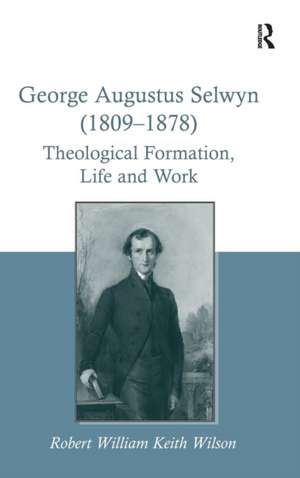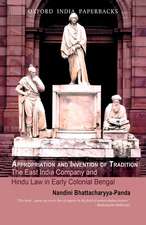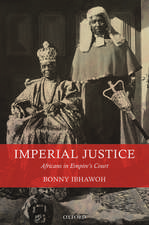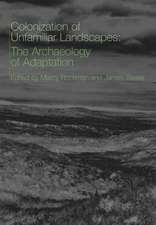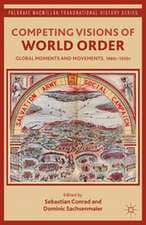George Augustus Selwyn (1809-1878): Theological Formation, Life and Work
Autor Robert William Keith Wilsonen Limba Engleză Hardback – 18 mar 2016
| Toate formatele și edițiile | Preț | Express |
|---|---|---|
| Paperback (1) | 387.75 lei 6-8 săpt. | |
| Taylor & Francis – 31 mar 2021 | 387.75 lei 6-8 săpt. | |
| Hardback (1) | 1059.00 lei 6-8 săpt. | |
| Taylor & Francis – 18 mar 2016 | 1059.00 lei 6-8 săpt. |
Preț: 1059.00 lei
Preț vechi: 1291.46 lei
-18% Nou
Puncte Express: 1589
Preț estimativ în valută:
202.64€ • 212.11$ • 168.66£
202.64€ • 212.11$ • 168.66£
Carte tipărită la comandă
Livrare economică 01-15 aprilie
Preluare comenzi: 021 569.72.76
Specificații
ISBN-13: 9781472438898
ISBN-10: 1472438892
Pagini: 218
Dimensiuni: 156 x 234 x 14 mm
Greutate: 0.58 kg
Ediția:1
Editura: Taylor & Francis
Colecția Routledge
Locul publicării:Oxford, United Kingdom
ISBN-10: 1472438892
Pagini: 218
Dimensiuni: 156 x 234 x 14 mm
Greutate: 0.58 kg
Ediția:1
Editura: Taylor & Francis
Colecția Routledge
Locul publicării:Oxford, United Kingdom
Cuprins
Preface; Historiographical introduction; Selwyn’s theological formation; Selwyn’s missionary policy; Selwyn’s role within the formation of the colonial Episcopate; Selwyn and conciliar authority; Selwyn’s impact upon the diocesan revival; Conclusion; Bibliographies; Index.
Notă biografică
Robert William Keith Wilson was born in Bath, Somerset in 1982 and is a graduate of Selwyn College, Cambridge in Theology (2003). He also has an MPhil in Theology (2004). His PhD on George Augustus Selwyn was approved in 2010.
Recenzii
’Robert Wilson has delved into the theological thinking and world that shaped G.A. Selwyn, a leading nineteenth-century missionary and colonial bishop and architect of pan-Anglicanism. This provides a rich appreciation of how Selwyn’s theology informed his activism and achievements.’ Allan Davidson, St John's College, Auckland, New Zealand ’Robert Wilson’s helpful study of Selwyn’s theology illuminates the bishop’s ministry and relationships in the radically different settings of colonial New Zealand and populous industrial Lichfield. He throws light on why the combination of traditional high churchmanship with his sense of calling as a missionary bishop could be so vexatious to the evangelical missionaries already in the colony when he landed. This new study using Selwyn’s sermons and letters will enrich and broaden our understanding of the bishop’s theological stance. Robert Wilson skilfully combines insights from such primary sources with recently published interpretations from New Zealand historians and deepens our appreciation of this most energetic and pragmatic episcopal reformer.’ Warren Limbrick, former Warden, Selwyn College in Otago University, New Zealand and retired Dean of St Paul’s Cathedral, Dunedin, New Zealand
Descriere
George Augustus Selwyn (1809-1878) focuses on Selwyn’s theological formation, which places him in the context of the world of traditional high churchmanship, rather than the Oxford Movement narrowly conceived. It argues that his distinctiveness lay in the way in which he was able to transplant his vision of Anglicanism to the colonial context. Making use of Selwyn’s personal correspondence and papers, as well as his unpublished sermons, the book analyses his theological formation, his missionary policy, his role within the formation of the colonial episcopate, his attitude to conciliar authority and his impact upon the diocesan revival in England.
